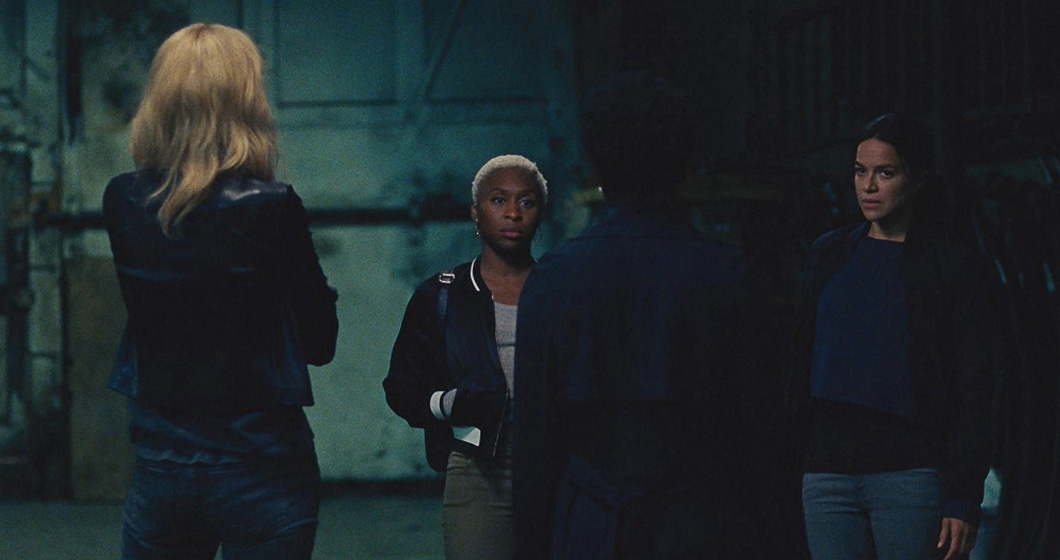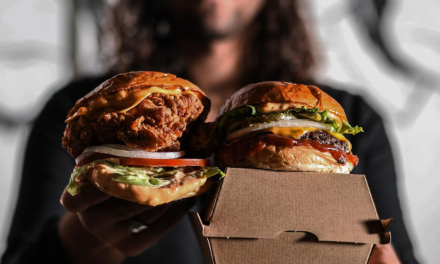It’s always great to see a director stretch their legs and try something new. It doesn’t always work, but it’s good to see someone move out of their comfort zone. It’s slightly galling, though, when they turn out to be, if anything, even better. Such is the case of Widows. Steve McQueen, who made his name with art installations and films that resembled art installations, like ‘Shame’ and the Oscar Winning ’12 Years a Slave’ turns his hand to the heist genre. He not only does it well but produces one of the best films of the genre, on a par with, for instance, ‘Heat.’
It’s a relatively simple plot outline. After a heist goes wrong and the crew is killed, their wives, under threat from a local gangster and desperate for money, resolve to execute the plans one of the dead thieves left for his wife (Viola Davis)
It would be improper to say much more about the plot. The fun of these caper films is their twists and turns. This has plenty. Some of them will genuinely catch you off guard, but, by the same token, you’ll also remember some small detail that foreshadowed it, one that you didn’t recognise as such at the time. There’s no moment that will make you yell the traditional ‘but, wait, if that was there, how come…?”
That’s not really enough for McQueen, though. What could have been merely a heist film becomes something much more. It becomes a mediation on the transformative nature of grief, the way relationships can be poisoned, the stratification of American society, the inherent intertwining of crime and government and illusion of legitimacy. And McQueen can do it all without ever slowing the film down. It is a brisk two-hour movie.
To do this, he employs some truly excellent filmmaking. There’s not a single scene in the movie that doesn’t have at least one interesting shot or cut. McQueen loves dropping you into a scene at an odd juncture or leaving it at a strange time. He puts the camera in odd places, like on the hood of a moving car letting us listen to the characters speak while we see the contrast between their house and the neighborhood. He does close-ups when conventional wisdom would suggest a wide shot. He puts us face to face with the character when another director would simply tell you where they are in the room.
It’s not surprising that he wants the camera to get intimate with his cast, given how very, very good everyone is. Viola Davis is Violas Davis good, which is to be expected. She’s amazing. What’s less expected is that so is everyone else. There’s not a weak link in the cast. Relative newcomers Cynthia Erivo and Elizabeth Debicki are especially excellent, neither falling prey to the clichés of their characters. Debicki especially, as a former trophy wife fighting to be something more. Daniel Kaluuya and Bryan Tyree are both terrifying as the villains, but both manage to be sympathetic figures, too.
It’s not just a heist film. It is one, and an outstanding one. Unsurprisingly, though, a filmmaker as good as McQueen, with a cast as good as the one he has, manages to make it much more by executing each beat much better than anyone else. The traditional scene where the villain deals with underlings that have failed him, one of the most cliched types of scene in film, manages to become fresh and terrifying when in his hands. I mean, he even manages to get a few laughs in there. It’s just so outside his usual wheelhouse that it seems unfair. It’d be like one of the best kung fu films ever made being directed by Sofia Coppola.
It’s an instant classic. Go see it. Now.






